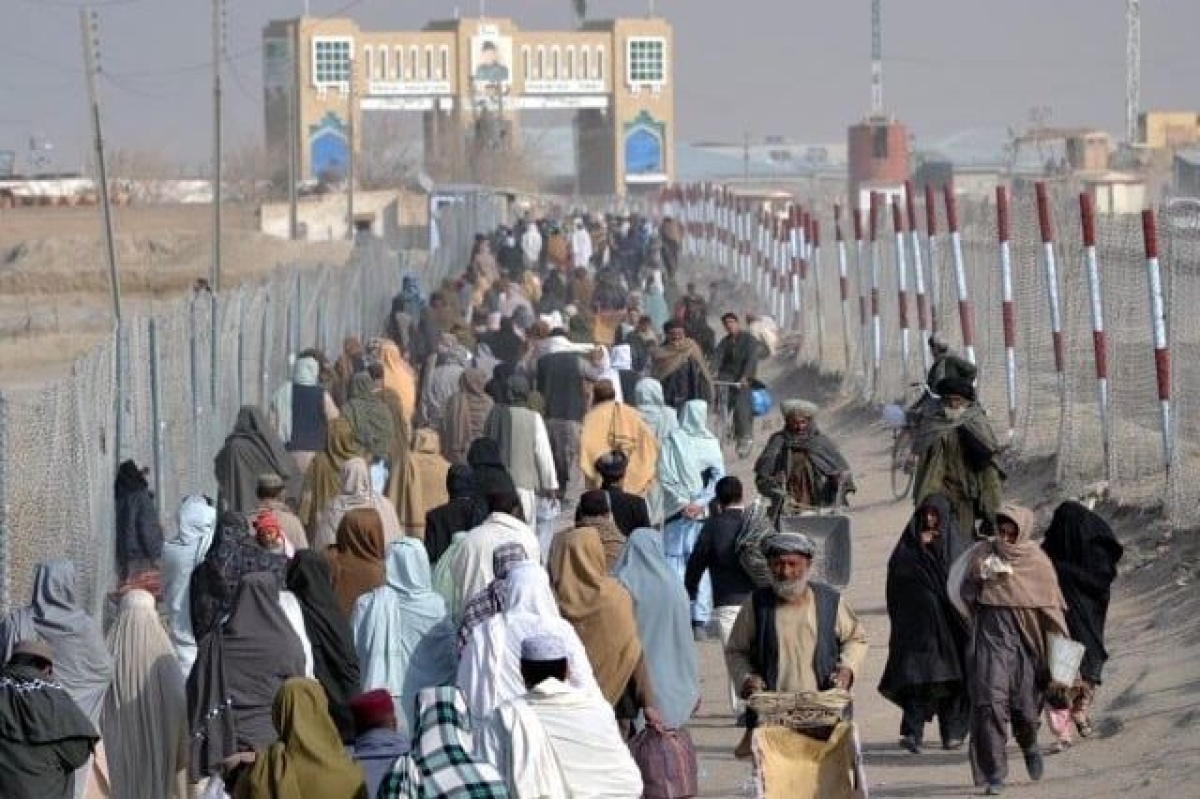Pakistan plant Massendeportationen von afghanischen Flüchtlingen

Afghanische Flüchtlinge an der pakistanischen Grenze im Sommer 2021, Bildquelle: INP
Anfang Oktober kündigte die pakistanische Regierung an, sie wolle bis zu 1,4 Millionen afghanische Flüchtlinge deportieren. Darunter befinden sich viele, die eigentlich von westlichen Staaten hätten aufgenommen werden sollen.
Was es mit diesem Ansinnen auf sich hat, erklärt die International Crisis Group:
On 3 October, Pakistan’s caretaker government announced it would carry out mass deportations – known under domestic law as an Illegal Foreigners Repatriation Plan – asking all concerned to leave the country before 1 November. Although the plan purported to apply to all foreigners residing in the country illegally, it appears designed to target Afghans, millions of whom have sought refuge in Pakistan over the years. Pakistan hosts an estimated three to four million Afghan refugees and migrants, including at least 600,000 who have crossed the border since August 2021, when the Taliban seized power for a second time in Afghanistan. Of these, 1.3 million are registered as legal refugees, holding Proof of Registration cards, while an additional 850,000 have received Afghan Citizen Cards from the Pakistani authorities, giving them some protections but not all of those afforded to registered refugees. Some 1.7 million more Afghans are believed to be residing in the country without any documentation at all. This last figure could be a significant underestimate, as people living on the mountainous frontier are accustomed to moving back and forth across the border, often without travel papers from either state.
An Afghan exodus is now under way. Tens of thousands headed for the border before the 1 November deadline, and hundreds of thousands have followed since. Many who left after the deadline appear to have been deported forcibly or under duress. Despite immediate outcry from the UN and other international bodies, Islamabad seems intent on forcing all undocumented Afghans back to their home country – and maybe many others as the plan progresses. In Phase 1 of the plan, which took effect on 1 November, the state is targeting “illegal” Afghans, meaning those with no documentation, those with fake Pakistani papers and those who have overstayed their visas. The government has not announced a clear timeline for the plan, but it has indicated that in Phase 2 it could go after Afghan Citizen Card holders. In Phase 3, it may send back even those holding Proof of Registration cards. The Proof of Registration cards for this cohort expired in June, and it is unclear if Afghanistan, Pakistan and the UN High Commissioner for Refugees (UNHCR) will be able to reach an agreement on renewing the cardholders’ status.
Inzwischen hat die Regierung in Islamabad erklärt die Deadline bis zum Ende des Jahres verlängern zu wollen, nachdem es von verschiedenen Seiten heftige Proteste und Druck gegeben hat.
Gebrochene Versprechen: Kaum Aufnahme in westlichen Ländern
Unter den Afghaninnen und Afghanen, die nun von Deportation bedroht sind, befinden sich auch viele, die nach Machtübernahme der Taliban 2021 ins Nachbarland geflohen waren, weil sie zuvor mit westlichen Staaten zusammen gearbeitet hatten und von diesen das Versprechen für eine Aufnahme erhalten hatten:
Many Afghans have applied for resettlement in countries that were members of the NATO-led force that maintained security in Afghanistan, such as the US, Canada, Australia and countries in the European Union. But as the world has turned its eye to other conflicts, those countries have fallen drastically short of their promises to Afghan refugees. It is estimated only 200,000 Afghans have been resettled globally since August 2021.
In Deutschland etwas wurden bislang 14 statt 12.000 Menschen aufgenommen - "das ist die Bilanz rund ein Jahr nach Beginn des Bundesaufnahmeprogramms für gefährdete Afghanen."